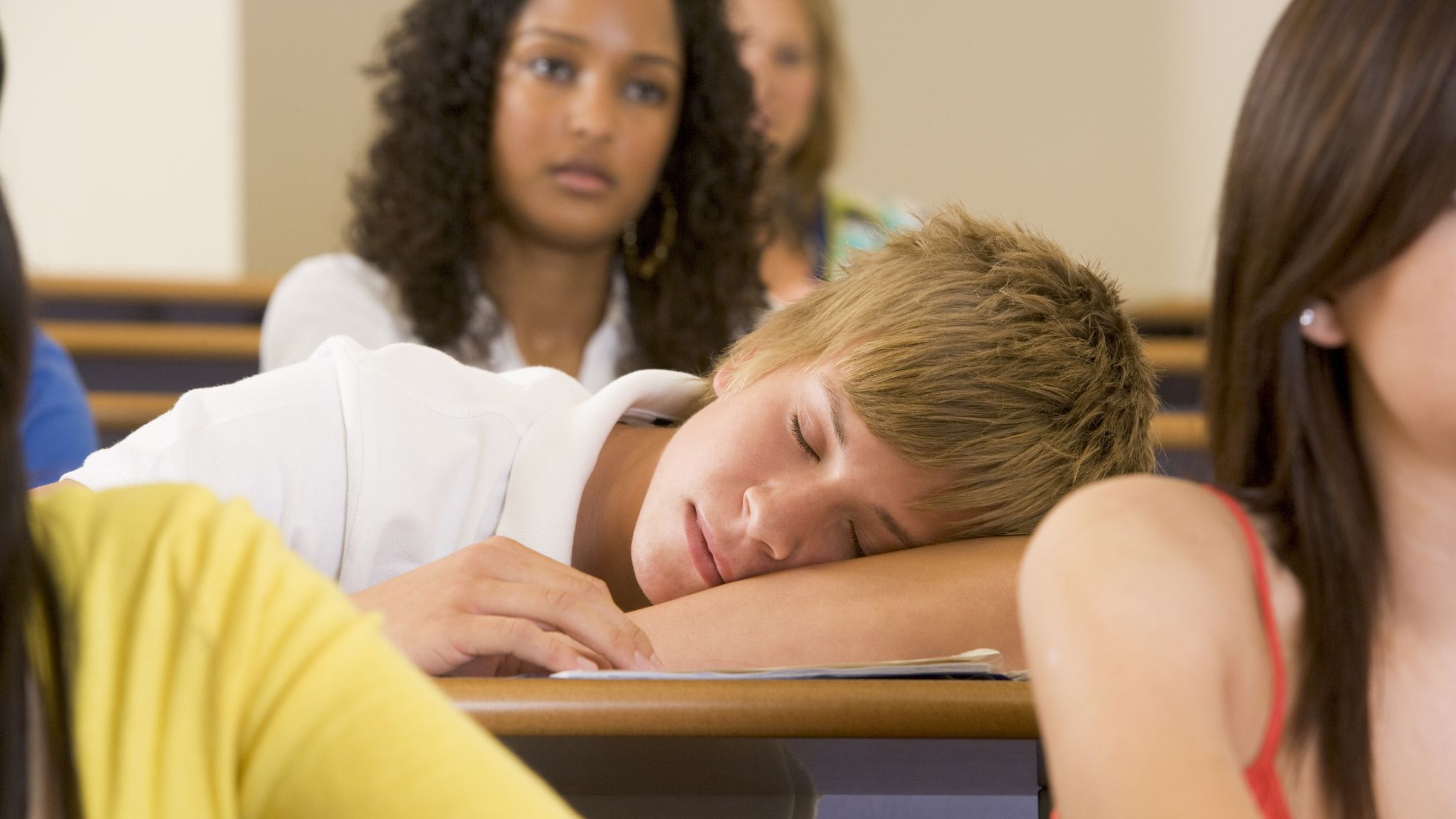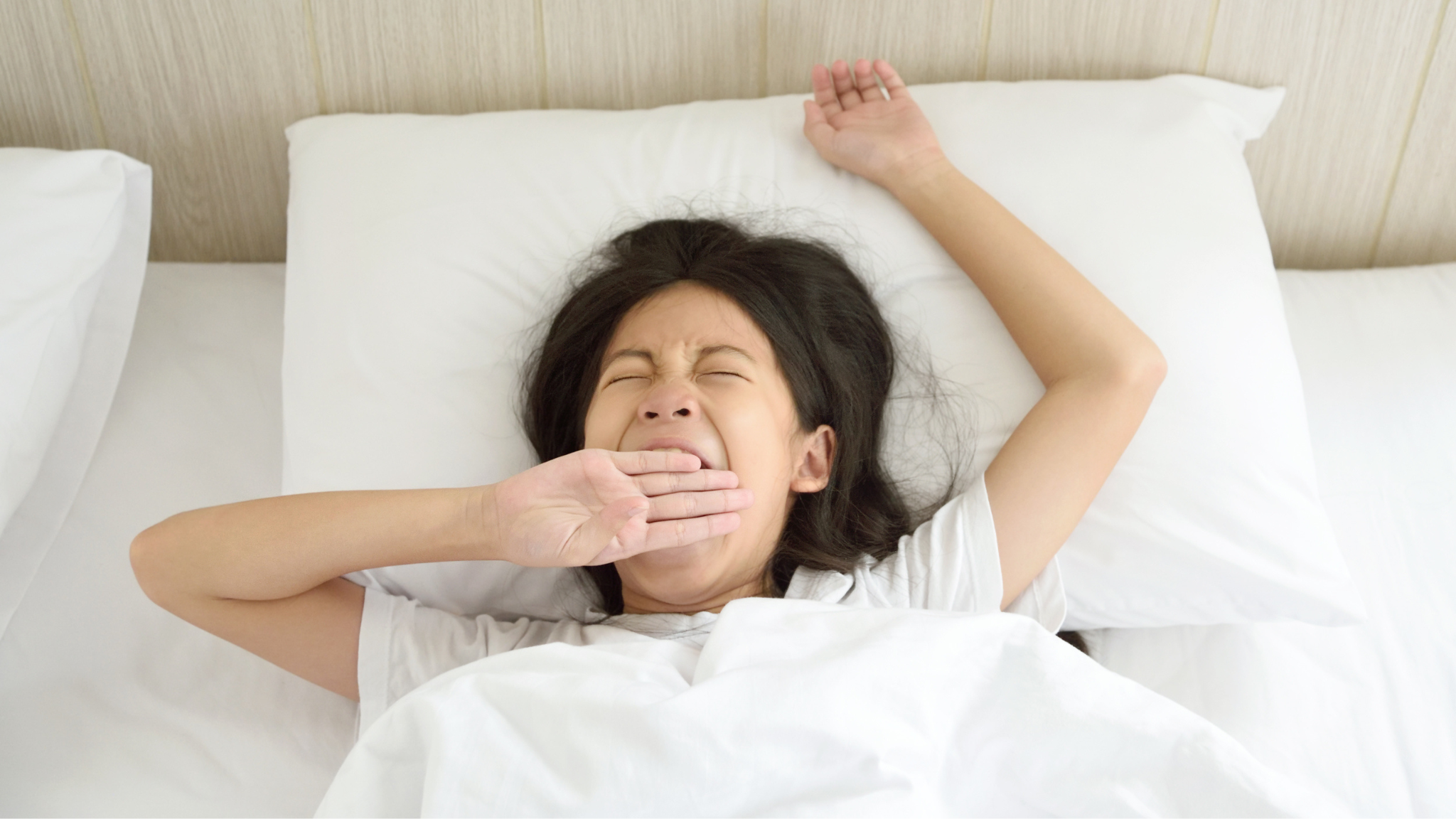Sleep is underrated but extremely important. It keeps us healthy both mentally and physically. But most teens are not getting enough sleep. According to the Sleep Foundation, “Around 6 out of 10 middle schoolers and 7 out of 10 high schoolers do not get enough sleep.” There are many reasons for this like poor diet and too much screen time, but studies show that early school time is also causing most teens to not sleep well.
If teenagers were able to decide when to go to bed and wake up, they would go to sleep around 11 p.m.-midnight and wake up at 9-10 a.m. This is not just because they want to watch TikToks. There’s a biological reason for it.
In a YouTube video for Penguin Books UK, Matthew Walker, an English scientist and professor of neuroscience and psychology with the University of California at Berkeley, says that teens having a later sleep schedule is “genetically hardwired, it has to happen. It seems to be part of their developmental phase during those teenage years.”

In the U.S., high school usually starts at 7:30 AM when teens should still be sleeping. The main reason why school starts so early is to make it convenient for parents to drop off their kids before work. This convenience for the parents is inconvenient and harmful for teens.
Teens would do much better in school and get enough sleep during the week if they were able to start school at 11 am. They would be able to have better focus, be in a better mood, and have improved mental health and overall health.
Because their sleep is severely lacking during the weekday, teens naturally try to make up for lost time during the weekend and will sleep for much longer. If your teen does this, don’t wake them up! Let them rest. It’s vital for their health.
According to an article by Stanford Medicine, teenage sleep deprivation is extremely harmful. The article states that “Sleep deprivation increases the likelihood teens will suffer myriad negative consequences, including an inability to concentrate, poor grades, drowsy-driving incidents, anxiety, depression, thoughts of suicide and even suicide attempts.”
In the same article, William Dement, MD, Ph.D., founder of the Stanford Sleep Disorders Clinic, discusses how high school is the major cause of teen sleep disorder, saying, “I think high school is the real danger spot in terms of sleep deprivation…It’s a huge problem. What it means is that nobody performs at the level they could perform.”
Sleep is not valued enough in our society with many who think sleeping deprivation is something to be proud of. Hardworking parents who manage to survive on little sleep expect their kids to do the same and end up passing on harmful habits to their children that will affect their health and mental health.
Research shows that changing the school start time to an hour or even just half an hour later can improve students’ focus and mood. The same Stanford article states, “One 2010 study at an independent high school in Rhode Island found that after delaying the start time by just 30 minutes, students slept more and showed significant improvements in alertness and mood. And a 2014 study in two counties in Virginia found that teens were much less likely to be involved in car crashes in a county where start times were later, compared with a county with an earlier start time.”

There’s been a lot of push back from school districts against starting at a later time, but the few who have made the change have seen how much it has benefitted their students. Back in 2017, schools in Seattle decided to change the start time of their middle schools and high schools from 7:50 a.m. to 8:45 a.m. Researchers from The University of Washington examined the Seattle high school students both before and after the change in start time.
According to the study, there’s a correlation between later school start times and better academic performance. Students who took a biology class after the later start time had final grades that were 4.5 percent higher compared to students who took the class when it started earlier. The research also reveals that sleep deprivation can make it more challenging to learn and recall new information.
A student’s mental health is also severely impacted when they do not get enough sleep. In same Stanford article mentioned earlier, Shashank Joshi, MD, associate professor of psychiatry and behavioral sciences at Stanford. stated, “Sleep is believed to help regulate emotions, and its deprivation is an underlying component of many mood disorders, such as anxiety, depression, and bipolar disorder. For students who are prone to these disorders, better sleep can help serve as a buffer and help prevent a downhill slide.”
If science proves that a later start time at school could significantly improve a teenager’s sleep, focus, energy, information retention, and mental health, why aren’t more schools changing their start times?
Changing to a later start time is expensive. Middle and high schools in Germantown, Tennessee decided to switch to a later start time and it ended up costing the town half a million dollars!
It can also be difficult for schools to figure out how to make a later time work since that means changing employee work times which can then affect their pay. Also, even with all the science proving that a later start time is better for teens, not every educator, parent, and student is on board with it.
The only way to get more schools to make the switch is with better sleep education. Matthew Walker has been the most outspoken advocate for sleep. He’s written a book, given a TED Talk, and gone on several podcasts to talk about the importance of sleep.
Our society needs to stop glorifying lack of sleep and start promoting good sleep so that teens can finally get their 8-10 hours a day of shuteye every day.










Add comment